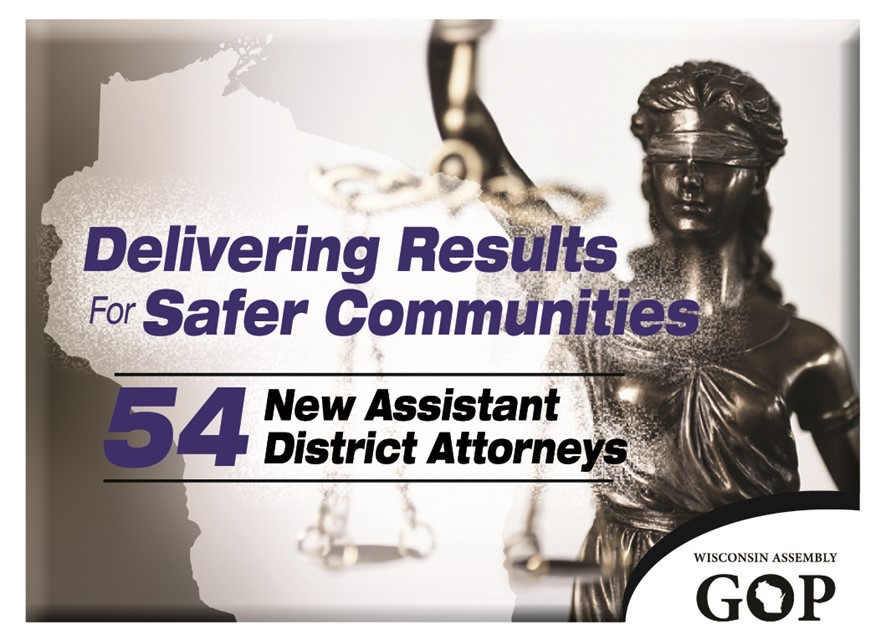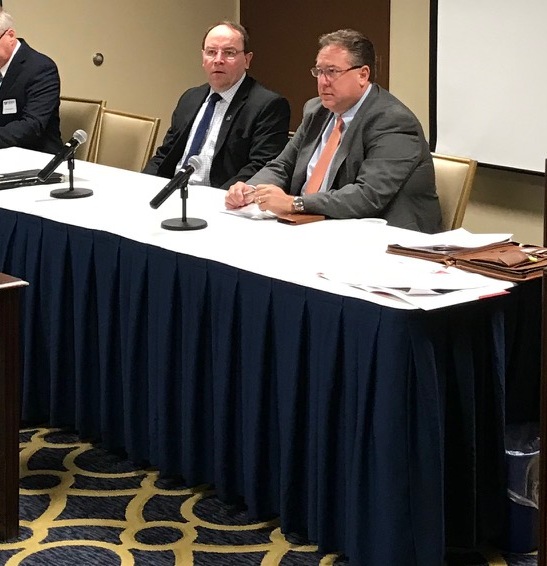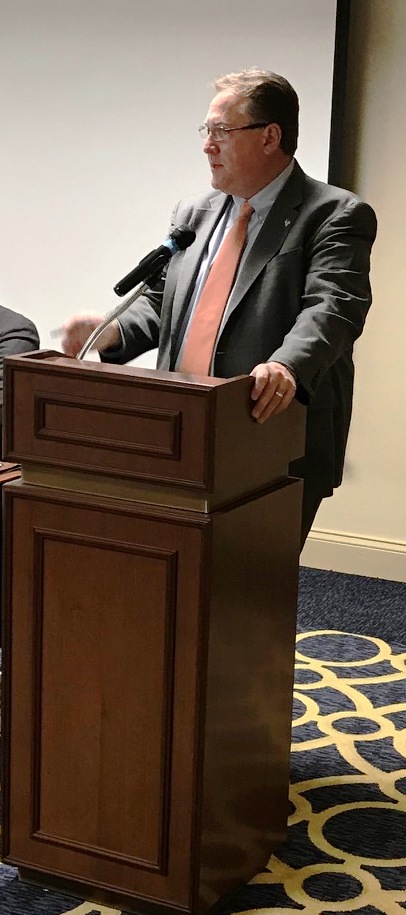
February 27, 2018
|
Corrections reform This week's e-update, the fourth in a series of articles focusing on legislative and budgetary accomplishments from the current session, centers on corrections reform. Last week, the legislature approved a series of bills relating to correctional reform. I was proud to join my colleagues in supporting these important legislative initiatives. The following represents a summation of correctional system reforms instituted during the 2017-19 legislative session:
As denoted, Assembly Bill 953 established a framework for small, regional Secure Residential Care Centers for Children and Youth facilities to house youths currently residing at Lincoln Hills and Copper Lakes. In January, Governor Walker announced plans to repurpose Lincoln Hills and Coper Lakes by 2020. Under this legislation, counties may establish SRCCCYs, partner with other counties to establish these facilities, or contract with another county or consortium to place juveniles under their supervision. The bill provided $40 million for sum sufficient grants of 95 percent of the construction costs of these facilities. Senate Bill 54 addressed prosecutor shortages throughout the state and funded 53.75 additional assistant district attorney positions in 40 counties. Ozaukee and Washington Counties will each receive one new ADA position beginning in July 2019. Lastly, Senate Bill 53 reformed the expungement process. Currently, at the time of sentencing, a court may order that a person's record be expunged when the sentence is completed. Senate Bill 53 eliminates the requirement for the sentencing court to rule on expungement and permits an individual to petition the court for expungement after completing his or her sentence. The individual must not commit another crime for at least one-year. Additionally, this legislation applies retroactively to those who previously committed a non-violent crime. These reforms are meant to help those trapped on the sidelines who have not been able to obtain employment due to one poor decision. For more information regarding corrections reform, see the press release I issued last week.
|
|
Public Libraries: A focal point of local communities Public libraries are focal points of local communities, providing access to modern technology and allowing individuals to escape from the daily grind by engrossing themselves in a mystery novel, to name just a few. More importantly, public libraries are engines of intellectual growth, community development, civic pride, and partners in child development. I agree with the American Public Library Association that these institutions are of paramount importance to local communities. The American Public Library Association posited that for the following reasons, libraries are among the most consequential locales in any community:
The following represented just a few of the myriad benefits public libraries provide to local communities. This session, the legislature made it a priority to invest in public libraries, recognizing that libraries are repositories of knowledge.
Public libraries are value to local communities and more than deserving of the funding increases appropriated in the 2017-19 biennial budget. Meeting with local groups This week, I had the opportunity to meet with
developers and property owners throughout Wisconsin to discuss
the benefits of economic development and Assembly Bill 770 that
I authored with Senator Duey Stroebel (R-Cedarburg). This
discussion, hosted by the Wisconsin Builders Association,
allowed me to better understand the issues of greatest concern
to members of Wisconsin's building and contractor communities.
Participating in a panel discussion with Senator Tom Tiffany at the Wisconsin Builders Association legislative day
Discussing Assembly Bill 770 with members of Wisconsin's building and development community at their legislative day |
|
Have a great week,
Stay up to date One of the best ways to stay up to date with what is happening in Madison is to sign up for the legislature's notification tracking service. This service affords you with the opportunity to track legislative activities in Madison. Upon creation of a free account, you can sign up to receive notifications about specific bills or committees as well as legislative activity pertaining to a subject area (i.e. real estate, education, health). You can sign up for this service at any time. You can also follow me on
Facebook and
Twitter to see what
I have been doing in Madison and around the 60th Assembly
District.
Please recommend the page to your friends and family members.
|
If you would like to be removed from future mailings, email me to unsubscribe.
State Capitol Room 309 North-PO Box 8952, Madison, WI 53708
(608) 267-2369
Email: Rep.Rob.Brooks@legis.Wisconsin.gov





